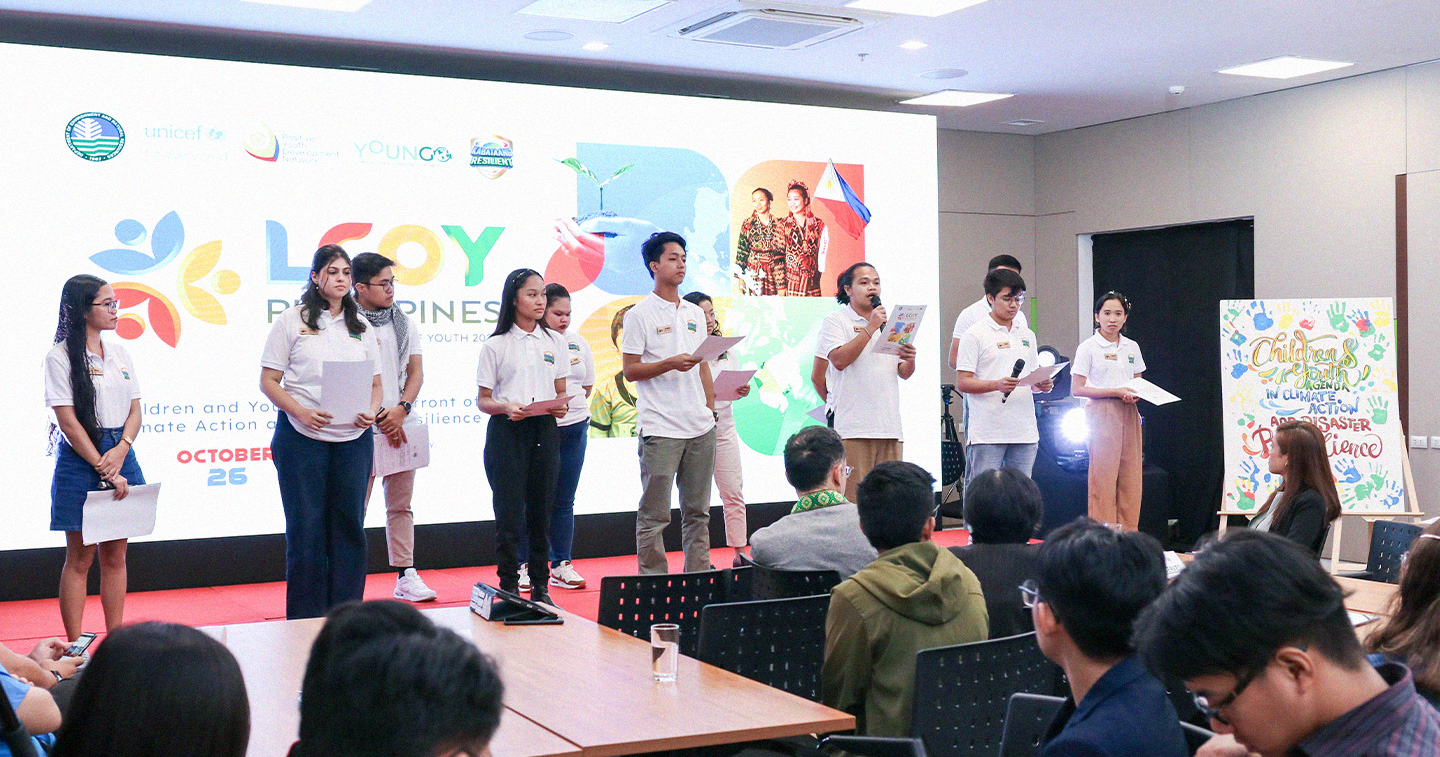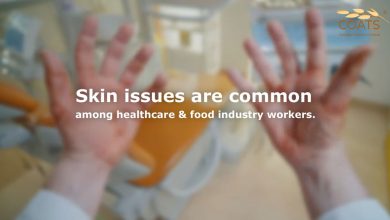MANILA, PHILIPPINES — As the Philippines commemorates the tenth anniversary of Super Typhoon Haiyan/Yolanda, over 100 climate, resilience, and environmental youth leaders and advocates in the Philippines gathered to present to the government the Children and Youth Agenda on Climate Action and Disaster Resilience. The children’s agenda will be sent to the Philippine delegation ahead of COP28 in Dubai, an international climate summit where world leaders gather to work together on solutions to tackle climate change.
Children and youth drafted the Agenda at the Local Conference of Youth 2023 (LCOY), a worldwide platform for idea-sharing, collaboration, and global impact, organized in every country to discuss climate challenges. An initiative of YOUNGO, the official Children and Youth Constituency of the United Nations Framework Convention on Climate Change (UNFCCC), LCOY 2023 Philippines was implemented by UNICEF, the Positive Youth Development Network (PYDN), and co-presented by the Department of Environment and Natural Resources (DENR).

Government agencies expressed their commitment to the actions plans presented by the young people.
© UNICEF Philippines/2023/Bacareza

Rey Anthony of Global Youth Biodiversity Network shared how their environmental initiatives helped promote peacebuilding within their community in Mindanao.
© UNICEF Philippines/2023/Bacareza

The panel discussion during the Local Conference of Youth 2023 allowed young people to raise their issues and concerns about the impact of the climate crisis in their community.
© UNICEF Philippines/2023/Bacareza
The 2023 Children and Youth Agenda on Climate Action and Disaster Resilience includes the following actions demanded by young people:
- Advocate for community-centered platforms for young people’s education and participation in climate action and disaster resilience.
- Develop effective, inclusive, and accessible storytelling for the climate and environment.
- Establish a mental health support network among children and youth working on climate action and disaster resilience.
- Build resilient communities that can effectively prevent, prepare for, and respond to disasters and climate change impacts.
- Establish inclusive, accessible, and safe spaces for all vulnerable sectors.
- Implement ridge-to-reef nature-based solutions involving children and youth.
- Empower children and youth to take action towards an inclusive, accessible, just, and regenerative agricultural and fisheries system.
- Empower children and youth to advance accessible, just, and sustainable renewable energy and aquatic resources.
- Increase children and youth participation in strong implementation of effective waste management policies and programs.
- Create a safe and enabling environment for Indigenous Peoples and Local Communities (IPLCs) and environmental defenders through protection, meaningful engagements, and cultural strengthening.
- Support Micro Small and Medium Enterprises (MSMEs) that promote eco-conscious businesses built towards a circular economy.

Paul Daniel Serrano of the Negrosanon Initiative for Climate and Environment, shared, “Roughly a decade ago, I experienced the devastating impact of Super Typhoon Yolanda on my community. As a child, I didn’t fully comprehend what was happening. I grew up surrounded by the grief of that experience, and I don’t want more children to endure such hardship as we battle the ongoing climate crisis. This Agenda will play a crucial role in safeguarding the well-being of young people, guiding us toward a future where the lessons of the past empower us to build a resilient community together.”
The agenda underscores the urgency and importance of involving young voices in the fight against the climate crisis and its impacts. It is also an expression of the unwavering commitment of these young environmental advocates to be at the forefront of climate action and disaster resilience and be part of finding solutions
Behzad Noubary, Deputy Representative of UNICEF Philippines, said that the climate crisis is a child rights crisis and called for support to young people. “Listen to them. Support their ideas and projects. Empower them so that they have meaningful contributions and involvement in local and national climate action and disaster resilience efforts. By ensuring the meaningful participation of children and young people, we are helping build a safer, more sustainable, and equitable world for all.”
UNICEF in the Philippines is working to make the essential social services that children rely on, such as clean water, healthcare, education, and nutrition, more resilient to the effects of climate change. Apart from working in communities to support mitigation and adaptation strategies, and to address loss and damage, UNICEF is helping to equip children with the education and skills needed to play a leading role in the just transition to a more sustainable world.






